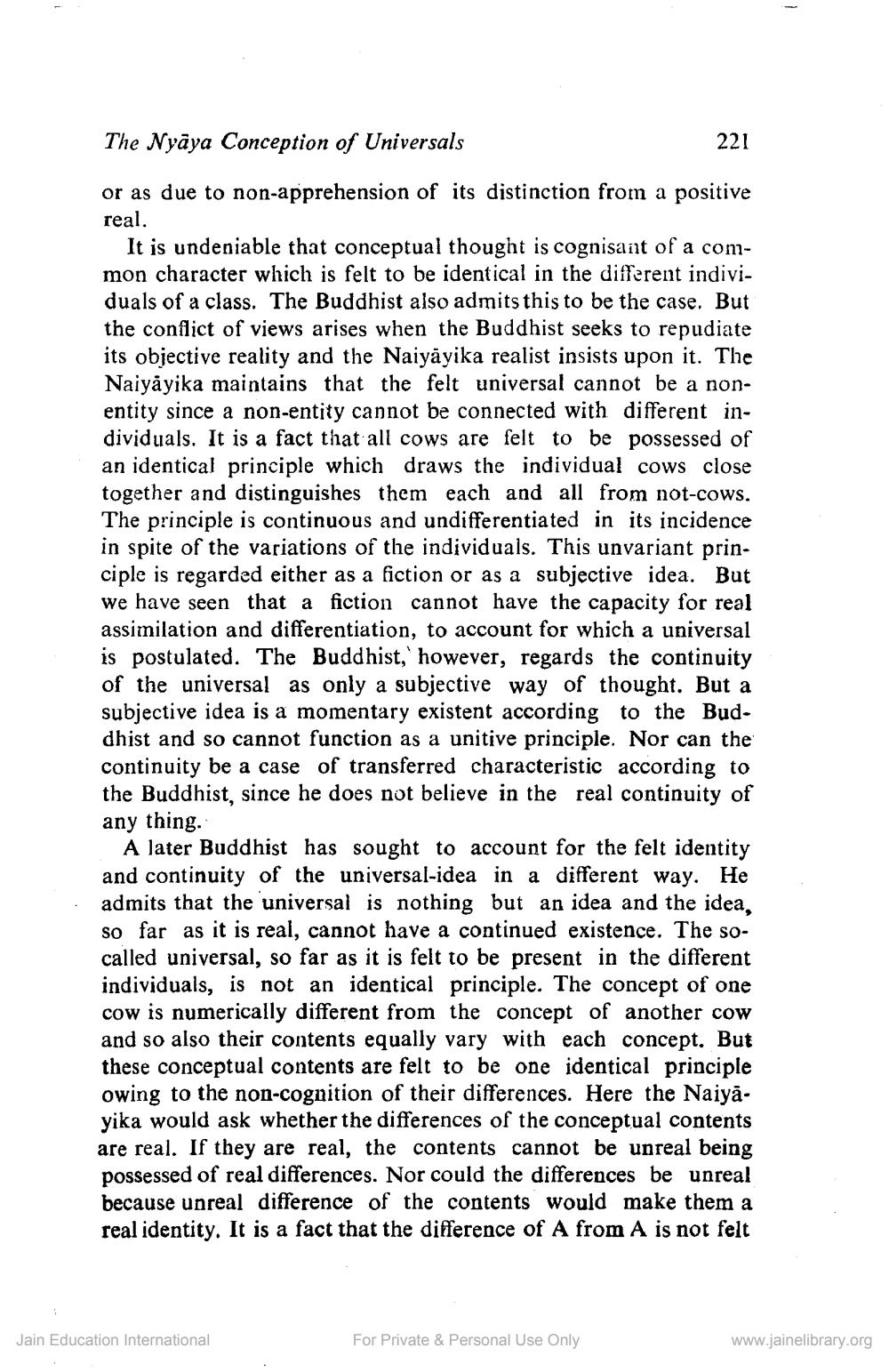________________
The Nyāya Conception of Universals
221
or as due to non-apprehension of its distinction from a positive real.
It is undeniable that conceptual thought is cognisant of a common character which is felt to be identical in the different individuals of a class. The Buddhist also admits this to be the case. But the conflict of views arises when the Buddhist seeks to repudiate its objective reality and the Naiyāyika realist insists upon it. The Naiyayika maintains that the felt universal cannot be a nonentity since a non-entity cannot be connected with different individuals. It is a fact that all cows are felt to be possessed of an identical principle which draws the individual cows close together and distinguishes them each and all from not-cows. The principle is continuous and undifferentiated in its incidence in spite of the variations of the individuals. This unvariant principle is regarded either as a fiction or as a subjective idea. But we have seen that a fiction cannot have the capacity for real assimilation and differentiation, to account for which a universal is postulated. The Buddhist, however, regards the continuity of the universal as only a subjective way of thought. But a subjective idea is a momentary existent according to the Bud. dhist and so cannot function as a unitive principle. Nor can the continuity be a case of transferred characteristic according to the Buddhist, since he does not believe in the real continuity of any thing.
A later Buddhist has sought to account for the felt identity and continuity of the universal-idea in a different way. He admits that the universal is nothing but an idea and the idea, So far as it is real, cannot have a continued existence. The socalled universal, so far as it is felt to be present in the different individuals, is not an identical principle. The concept of one cow is numerically different from the concept of another cow and so also their contents equally vary with each concept. But these conceptual contents are felt to be one identical principle owing to the non-cognition of their differences. Here the Naiyayika would ask whether the differences of the conceptual contents are real. If they are real, the contents cannot be unreal being possessed of real differences. Nor could the differences be unreal because unreal difference of the contents would make them a real identity. It is a fact that the difference of A from A is not felt
Jain Education International
For Private & Personal Use Only
www.jainelibrary.org




